More courage needed
By Andrew Corkill
I often wonder what is next for the Uniting Church? It seems to me that the Uniting Church is now getting middle-aged. Like me, the spark and fervour of youth are fading. Wrinkles are forming, and ruts that I once railed against are feeling like a pair of old slippers, comfortable.
The Uniting Church at formation was cutting edge. We proclaimed values that were ahead of the time. Moreover, we built them into our polity. We insisted on having women as part of all aspects of leadership. We thought that reconciliation with Indigenous Australians was necessary, and the care for the environment as God’s work.
Forty years on, wider society is starting to catch up to these values that we proclaimed at union. Now that we are an established denomination, middle-aged, if you will, are we a bit more conservative?
It seems we are less willing to embrace the outrageous call of the gospel in today’s context lest we fail. The call was heeded when the church was formed, and that call has not stopped.
I look at the church now and wonder, what are we embracing or implementing that is so progressive, so difficult, so courageous, or even outrageous that it will become the norm for society in the next 20 or 40 years? I’m not sure that I can point to it.
My fervent prayer is for the Uniting Church to intentionally seek out the dreamers and visioning people who are willing to call the church to embrace the hard, find the cutting edge, and challenge us to embody the outrageous call of the gospel.
Andrew Corkill works with Act for Peace, the international aid agency of the National Council of Churches in Australia. He is also studying for ordained ministry.
I needed to forgive myself
By Katrina Davis
Just before I started my HSC my family moved again, this time to the outskirts of Sydney.
I had three resolutions when I moved. The first was to join a gym (this took another 20 years). The second was to get a job (didn’t happen until university). The third was to join a youth group.
The youth group at the local Uniting Church was a huge success. There was nothing like it in the small town I had come from. I had tremendous fun with this group of young people. I felt connection and belonging. I had a proper grown-up spiritual life of my own and I took to this and to the social life with enthusiasm.
I still drink from my commemorative 1997 National Christian Youth Convention mug. My parents took some convincing to let me fly all the way to Tasmania for the convention, but I am so glad they did. I had never experienced anything like it: young people like me from all over the country, so much talent and creativity on display, amazing speakers, and buckets of fun.
My beliefs became more fully my own during these years. I unquestioningly believed that Jesus died for my sins. I understood that if I believed in Jesus and gave my heart to him that I would go to heaven when I died and not to hell.
The theology I listened to and endorsed at this time was hugely impactful, but not always positively. The most fundamental tenet of this theology, as I understood it, was that I was a sinner and I deserved punishment. A lifeline was offered in the divinity of Jesus who could forgive my sins. Critically, forgiveness didn’t provide a free pass to sin. Despite never being able to achieve worthiness in the sight of God through my own actions, I received the message that I must never stop trying.
The theological understandings important to me have changed considerably since these first years of adulthood, but even in the more “progressive” churches that I have attended since then, theology has been a central preoccupation. Not necessarily in sermons or theological reflections, but orders of service still included confession and absolution as non-negotiable liturgical beats.
I wonder what might have been achieved if instead of being encouraged, albeit gently, to confront my sins, I was taught how to live with mistakes, to recognise the common humanity rather than individual sinfulness that is inherent in mistake making, and to learn to forgive myself.
This is the work of the self-compassion journey that I have started in mid-life (with groundings in a Buddhist, rather than Christian tradition).
None of this critical reflection should be taken as the definitive judgement of the influence that the Uniting Church has had on me. I have been shaped in profoundly positive ways as well.
Many of the values that I aspire to reflect have come from Christian influence. I believe governments should intervene and intervene often with outlandish compassion and I vote accordingly. I try really hard to avoid holding people in judgement. I rail against ever writing someone off. I don’t doubt there are many close friends and distant acquaintances who could testify to my failings in all these areas, but my failure to inhabit these values does not negate their importance to me.
The bulk of these “blessings” come from the latter part of my Christian life when I was an active member of a progressive, inner-city church. We celebrated the leadership of women and LGBTIQ+ people. We honoured the sacred texts and sought their historic and contemporary meaning. We were, at worst, a bit wordy and exclusively erudite, but this matched my devotional bent.
I attend rarely, but the Uniting Church is still my church and I am proud of it. It has saved me. I still turn to its stories in making sense of my life. I am cross that it hurt me. I take comfort in the belief that I will one day return when we are ready again for each other.
Katrina Davis is an aspiring writer.
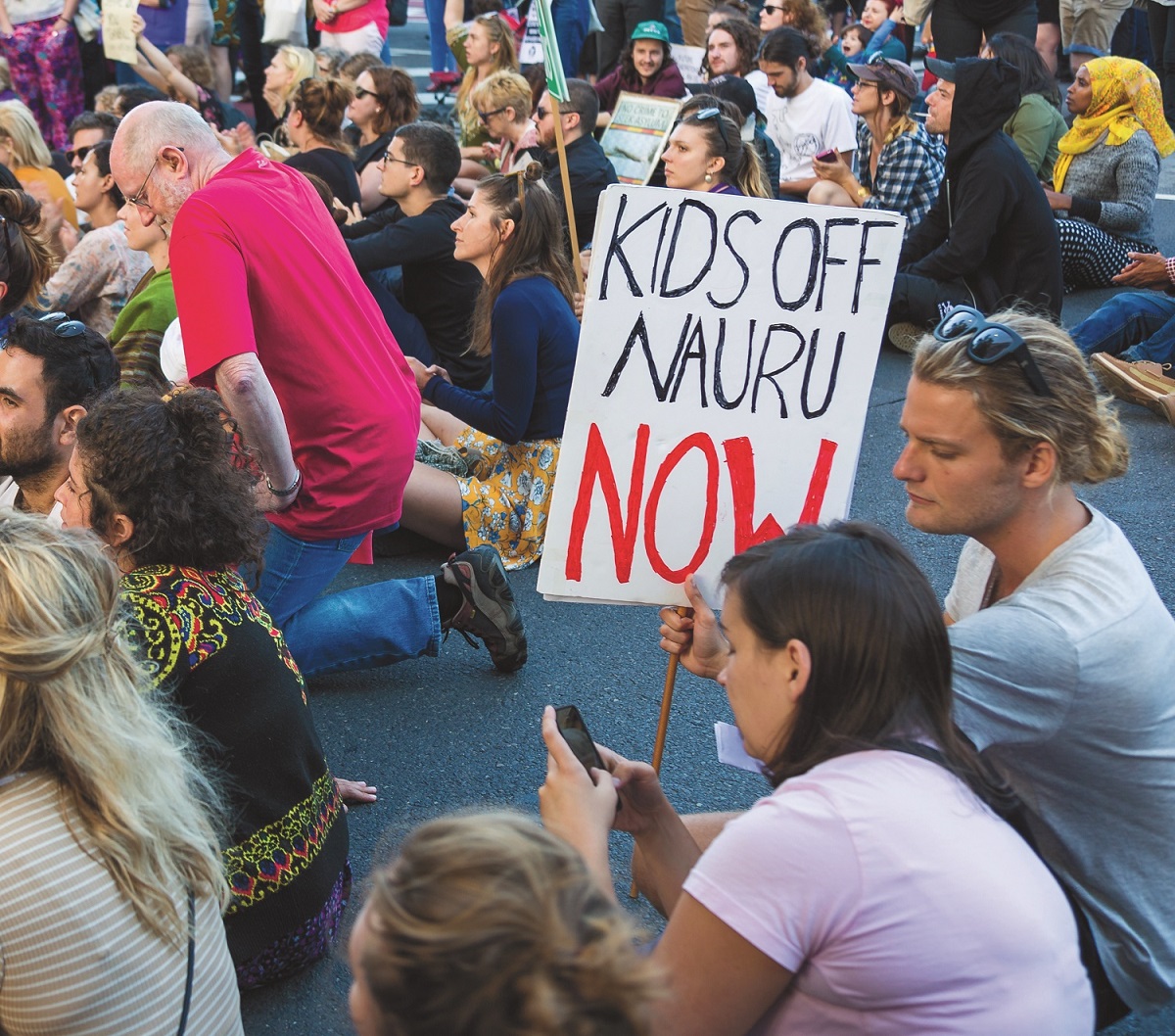
The Uniting Church can have an impact on issues of social justice in Australia and the world.
Invest in youth
By Glenda Downie
I believe the future of the church is its children and youth; without investing significantly in them, the church will literally die.
One of the attractions of the Uniting Church is its ability to welcome all: “just as you are”. However, welcoming can only go so far if you do not have programs or supports in place to encourage families and young people to stay and become connected. The congregations themselves can only do so much without support from Synods.
As a children’s worker, I am often disappointed that United Theological College does not offer children’s ministry-specific day courses or intensives to help develop those already involved in youth work. While this might not be the intention of the Uniting Church, it does tend to scream “young people are not our focus or who we value”.
The Uniting Church’s support for many justice causes is both a strength and weakness. While for the most part many causes need our love and attention, they should never be at the expense of its people. When an issue begins to divide and causes disunity within the Church, I begin to wonder if it is truly wise to pursue it.
At times it can seem like these causes sap all our energy and strength, leaving children and young people bereft of love, safety, and a place to belong to and be hopeful, something only Christ can provide.
I yearn that believers in Christ would invest in children and young people in the same way that people invested in me all through my childhood and teenage years. While the frustration I have experienced in recent years has made me question my loyalty to the Church, I realise no church is perfect.
God calls me to be where I am for his purposes alone and this is the driving force that keeps me within the fold of the Uniting Church to date.
Glenda Downie is engaged in children’s ministry at Pittwater UC, NSW.
Uniting means belonging
By Elizabeth Elia
I think it was in the childhood of my faith that I became aware of “the Christian veneer” and the lengths to which we might go to hide our true self, our doubts, our fears and failures. Having a dad as a minister deeply imprinted on me the reality that our ministers are only ever human, thanks be to God!
These were in many ways difficult years, and I wonder now how my parents carried the hopes and expectations of the Uniting Church on their shoulders. How they must have stood in that ghastly gap, between what was and what could be. Traditions and dreams colliding, generations held together in grace, yes, but also in the pain of loss, and that peculiar grief of a slowly dying church.
You see, growing up Uniting means I never saw the golden years of the church. I never heard the sound of a Sunday School filled to the brim with children. I never knew the certainty of all my friends going to church. I never knew what had been lost or how the church’s decline permeates every Hallelujah, filling my Uniting Church with perpetual grief and resurrection hope.

Love and laughter can flourish within the church.
Eventually life’s tragedies and triumphs brought my family to the Blue Mountains, where I would soon meet Rev. Marjory who would be called to Leura Uniting Church. She wore colourful dangly earrings. She told stories. She spoke of God like a woman. I will be forever grateful to have grown up in a church where gender was not a stumbling block to imagining myself in ministry.
The term “Bible-believing church” somehow entered my consciousness as a young person, the implication being that some churches, that is the Uniting Church, didn’t really believe in the Bible.
The truth is I didn’t grow up reading the Bible “religiously”. But what I did learn was how to question and wrestle with the scriptures. I was given a safe space to doubt and rage and wonder what on earth this holy text could mean for my life and for the life of the world. For someone growing up in a predominantly secular environment, this way of “reading” the Bible was helpful.
My Christian faith was an oddity in my circle of friends. Yet I was grounded in the ability to wonder and question, I was so committed to inclusion and acceptance, that it wasn’t hard for my friends to accept me. I was the God-believing kid, and I was OK.
When I think back on the communities that have shaped my growing up I am filled with gratitude and hope for the future of the Uniting Church.
Growing up Uniting means creating safe places of belonging. It means seeing and nurturing potential, but also making space for trying and failing. It means carrying one another in our grief and frustration and when things fall apart. It means learning to tell your own story, which is also our story and God’s story. It means listening for God’s call in the lives of the church and community who love you. It means continuing the wonderful and lifelong journey of growing up.
Elizabeth Elia is the Minister at Glenbrook UC, NSW.
Let’s listen to young people
By Justin Gawanygawany
As a child I went to youth programs but as I got older I dropped out of going to church.
I was a single mum and life was a bit of a struggle. And I was working and pretty stressed. I spent a lot of time at card games.
One night I lost all my money gambling. This wasn’t unusual but on this night I became aware of music coming from the church mob who were having fellowship outside. I remember the words of the song were “There is a place for you.”
An internal tug of war was going on inside of me, whether to go and hang out with another group of card players or go and join the church people. I had my daughter with me and we went towards the sound of the music.
I sat down in the shadows, furthest from the light. Listening to the words of that song I was asking in my heart if God has a place for me. My little girl kept saying she wanted to sit closer to the light.
That night I made a choice. I got up and moved into the circle of light. My heart was thumping. And I found myself crying as if the outer shell had broken. I felt the need to kneel down and pray. And it was like light was shining all around me giving me a new start.
I prayed to the sky, “Now I know it’s you Lord. And you want me not to keep wasting all my money and wasting my life. You have a purpose for me”.
A heaviness lifted. I felt light and there was a great sense of relief. I felt the heavy burdens I’d been carrying could be laid down.
That was 2007. And I never went back to the cards. How would I describe the last 14 years? I think of words like, wonderful, precious. I still have family struggles and face tough obstacles but I know I can learn from those and keep going. I have God with me and I’d never want to go back to what it was like before.
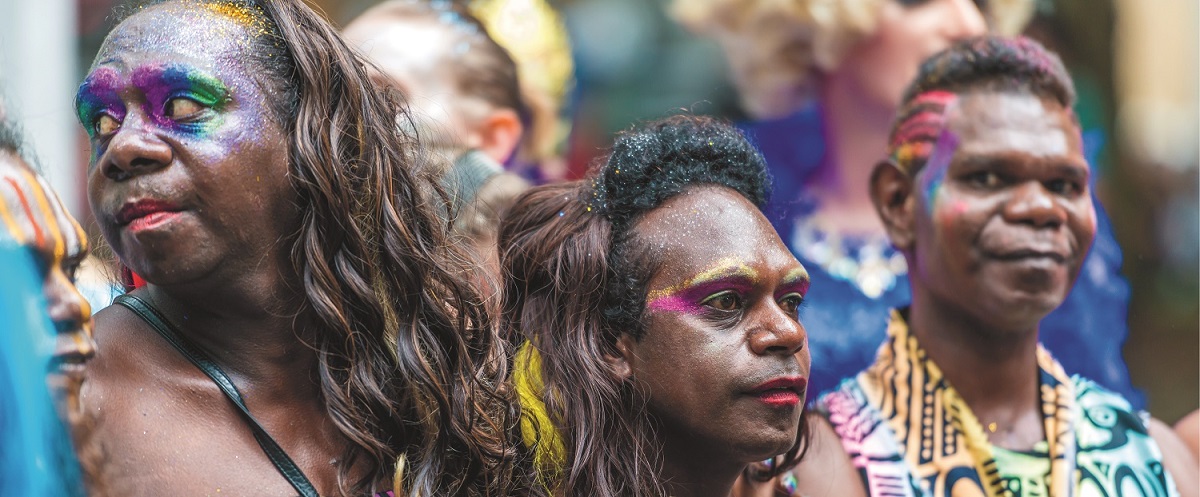
The Uniting Church offers a welcoming home for all Australians.
Darkness can ruin your life. It’s hard to describe but moving to the light has given me a beautiful life.
My Yolŋu identity keeps me strong. As a Yolŋu Christian I think we have something to bring the wider church.
The Christian faith that has been passed down to me by my Yolŋu family weaves together knowledge of Jesus and knowledge of this land from our Indigenous heritage. The song lines of our ancestors connect us together. Like the way a river (Yirritja moiety) runs towards the ocean (Dhuwa moiety). The fresh water and salt water mix together. Both are water, they meet and mingle, like different tribes.
We might travel together or separate but we come together, we are connected.
If you ask me what my hopes are, I remember how recently my young cousin, Abigail, was carrying a bag with a Bible in it. She said, “I want to be a minister.” I don’t know what she’ll grow up to be but I felt happy to think that this was something she was thinking about, a possibility.
I hope the church can encourage and listen to young people. Many have so much to share and good stories to tell so we need to give them opportunities to lead. I hope we can give space to newcomers. We need their gifts.
Justine Gawanygawany works as an assistant teacher in Ramingining community school and is currently doing a Diploma in Translation Studies at Nungalinya College, NT.
My faith has been fluid
By Madeline Gordon
Something that I have found to have been difficult at (my congregation) is the aging demographic within the church and I understand that this is an issue all throughout the Uniting Church.
I do find it difficult to see the church itself remaining relevant to me and other people within my generation. While I believe the core messages to be enduring and timeless, these seem to get lost amongst the many things that go against religion.
I have had a very fluid relationship with my faith. There have been moments throughout the last few years especially where I have questioned the point of having a belief in something as strongly as some do.
I have questioned the existence of any god(s) at all, especially in high school where most of my peers openly expressed a disbelief and distrust in the Christian God, in particular, and the ones who didn’t were right-wing conservative traditionalists and with that latter group I shared polar opposite views about most things. Any that were in between were too afraid to disclose their minority belief, or if they followed a religion other than Christianity.
My faith and spirituality is what most would describe as an unconventional and progressive view of religion. I believe in a God who is perhaps a creative force, a positive energy, a mystery that is not meant to be fully known, in order for us to find ourselves amongst the uncertainty of life.
I do not believe you have to be religious in order to be a good person, but I believe my faith has had a very important role in shaping my personality because it has made me more empathetic, open-minded and free of judgement towards other people and has assisted me so far in finding all sorts of meanings in my life.
Jesus spoke about love and he also talked about justice and judgement—the whole basis of His message was that God loves therefore we must love as well. In light of all this, the biblical call of our God to justice, to love of neighbour, to care and love of the groaning creation is still what the Church can offer and what I see is the future of the Church.
We have responsibilities that come with our many blessings and I am convicted that more needs to be done.
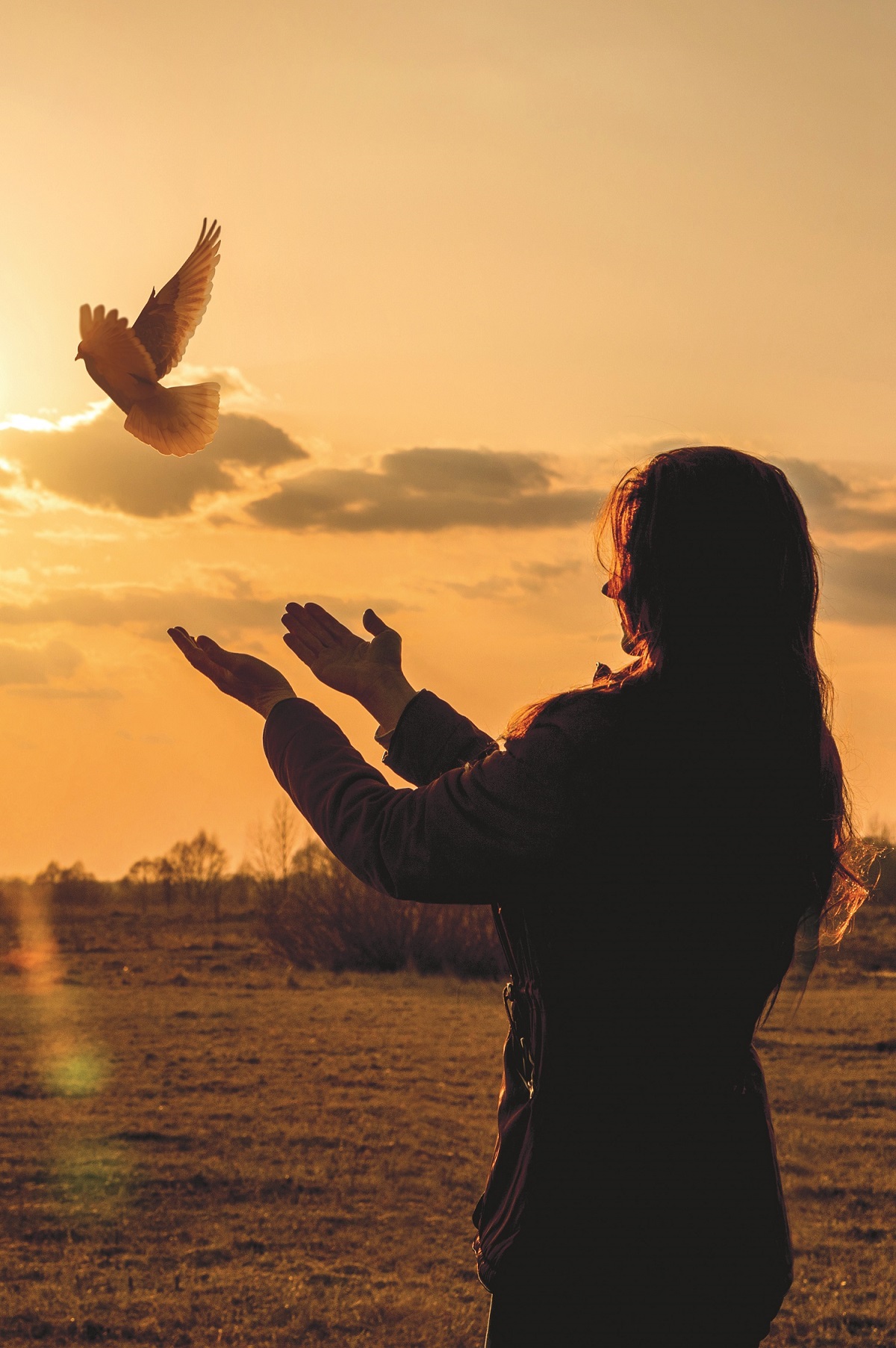
The Uniting Church has a timeless message, but one that must also remain relevant in changing times.
Christianity is fighting a relevancy battle in Australia and part of that is the church not being able to keep up with the changing context because it is changing so rapidly.
So how do you make the message relevant for this time?
We have a timeless message, but we are not able to make it relevant for this particular time, so we go back to tradition rather than asking how we can present this message in this time and age.
Religion has the tools to create a better world, but it also has the tools to destroy it. It is a matter of how we choose to use what we have to make or not to make a difference.
Faith is such that we never really know what the future will be, but we remain faithful in the time we have to make this a better world for all.
Madeline Gordon is studying a Bachelor of Law/Bachelor of Politics, Philosophy and Economics at the University of Wollongong.
We have freedom to question
By Elvina Kioa Kramer
The greatest challenge to my faith came as a young adult when my father (Rev Jason Kioa) was elected Moderator of the Synod of Victoria and Tasmania. A huge blessing for my family, we were excited to support Dad’s ministry but at the time I did not realise how this event would significantly change my own spiritual life.
Being of Tongan heritage and a daughter of a Minister of the Word meant actively participating in the life of the church where my father was called to and attending Sunday morning church services each week. I honoured this expectation throughout my teen years and well into young adulthood until the time my father became Moderator.
It was more of a traditional congregation (in the heart of Melbourne) which included worship services using the pipe organ and singing of traditional hymns, and although the church had established a successful mission to international students in providing English speaking language classes and food drives for the homeless and elderly, it was hard not to notice the low attendance at Sunday morning services and the almost non-existent representation of youth and/or young families.
This was disappointing for me, but I understood the traditional style of worship, music and liturgy did not support intergenerational worship. My commitment to church attendance and participation in church activities quickly wavered.
Although the church was welcoming and provided pastoral care outside of Sunday services, the lack of young adult members made it difficult for me to find common community. And so, after a year of attendance I surprised all my family and friends and decided to venture overseas.
Although this was several years ago now, I believe this is the biggest challenge the UCA is facing today. That is, to encourage and support the growth of the Christian faith of youth and young adults in the church so that they can continue the mission of the church as active participants in the life of the church.
After over a year away I returned home to Melbourne and moved back with my parents. I also fell straight back into my old spiritual routine of attending Sunday morning services and participating in church activities. The attraction for me to return to attending a Uniting Church was simple: there is a sense of welcome when I walk through the door of any Uniting Church be it if I am attending for the first time, or if I am a long-standing member who has returned after a long absence.
The environment is friendly and open, supportive but not overbearing. In my opinion, the UCA has created an environment where you have the freedom of choice in several aspects in your spiritual life. There is the freedom to question Bible teachings, the freedom to attend or participate in worship or church activities and the freedom to choose Christ as your Lord and Saviour.
And similar to the prodigal son, I feel I will always be welcomed into the church regardless of the length of time I have been inactive, the size or type of the contribution I make to church life or whether I have accepted Christ into my life.
The UCA allows spiritual freedom to question, learn and choose God’s gift of grace.
Elvina Kioa Kramer is Principal Mechanical Engineer at AECOM, Melbourne.

The Uniting Church must always address the simple question of what does it stand for and who does it represent?
What do we stand for?
By Trevor Prowse
Forty Four years have passed since Union and I wonder what does the Uniting Church mean and stand for?
I think that the wider community aligns the UCA with issues of social justice. It appears to be an inclusive faith-based community but it doesn’t have the presence or recognition of the centuries-old established Catholic and Anglican churches.
It doesn’t get the same level of criticism around conservative views and sex crimes and yet the numbers of adherents continue to dwindle. The Catholic Church has long been associated with “guilt” attendance and the Sydney Anglican church for its black-and-white views with little scope for “grey”.
The Uniting Church is seen as an alternative for “others” and yet this is also its weakness. There isn’t an established sense of what we stand for.
Those who are disenfranchised with the institution of the wider church want something different, but the Uniting Church has tried to be all things to all people with no clear foundation. This is perhaps Gospel-driven, a church for all people, but only those who know the Gospel, or are seen as other, respond/understand, and not in huge numbers.
I believe many Christians perceive the UCA as wishy-washy. At times I too would prefer clearer, louder statements coming from the UCA. I believe we have fallen into two categories of adherents—the highly educated academia and the poorest of the poor. We have lost our way with middle Australia.
And of the two categories we have become more of a corporate entity rather than engaging with local communities as the “church on the corner”—a centre of community for everyday people.
(When my family moved house we) set about “church hunting”. We visited a local Uniting Church, but they were in a state of flux with the incumbent and, true to statistical analysis, an ageing congregation.
We tried the Presbyterians but found the theology far too conservative for our liking. With teenage children we sought a church home with a youth group. This led us to explore a nearby Anglican church with a youth group populated with the kid’s school friends. It was a good fit for a while, until issues around LGBTQI+ in particular came up and were met with the conservative response and black and white attitude.
Many of the youth left, even the baptised Anglicans! My kids were some of the only ones left until they too could no longer continue to attend.
We tried the local Catholic church and while we enjoyed the theology and our kids, who had attended a Catholic primary school, felt comfortable with the rituals, at the end of the day we weren’t Catholic and weren’t planning to convert in order to fully participate in ritual and service.
And so we didn’t go to church for some time but eventually found our way to Leura Uniting. We were welcomed with open arms, young blood! Unfortunately there is no youth group, but our kids have established good relationships with many of the congregants, including retired clergy, which has helped in their faith formation. But there is nothing quite like a Church Fellowship and I am sad to see my kids not having this experience.
Their Anglican experience has not “turned them off”, but has opened their eyes to difference, which is a good thing. Unfortunately, in the Australian context at least, they seem to be in the minority.
In an era where there is increased youth poor mental health and anxiety-related issues, it seems as though the church of yesterday has much to offer. A community, an extended family, a faith in something greater than self.
Sadly “wellbeing” has become a science-based commodity rather than a faith-based wisdom. I have heard the expression that “science has finally caught up with the sages”. But how do we take that message to a secularised Australia, with greater interest in science than religion and a misunderstanding that the two cannot co-exist in a complementary, co-dependant way.
I hold a degree in Environmental Science and am increasingly excited by the Uniting Church’s stance on and interplay with environmental issues.
Why do I stay? I enjoy attending church. It is familiar, comfortable and challenges me to be a better person. I usually take something away from the sermon or other parts of the service. Even if my mind has wondered, it has usually taken me somewhere to challenge me.
At Leura UC we enjoy the enviable position of having the benefit of hearing the wisdom of several retired ministers/pastors who bring their own individual approach to issues. The UC is known for its openness and inclusivity. Although there is still a long way to go, I am proud of the commitment to Indigenous reconciliation and a public and determined attitude towards refugees.
Trevor Prowse holds TAFE and university qualifications in horticulture, environmental science and bush regeneration.
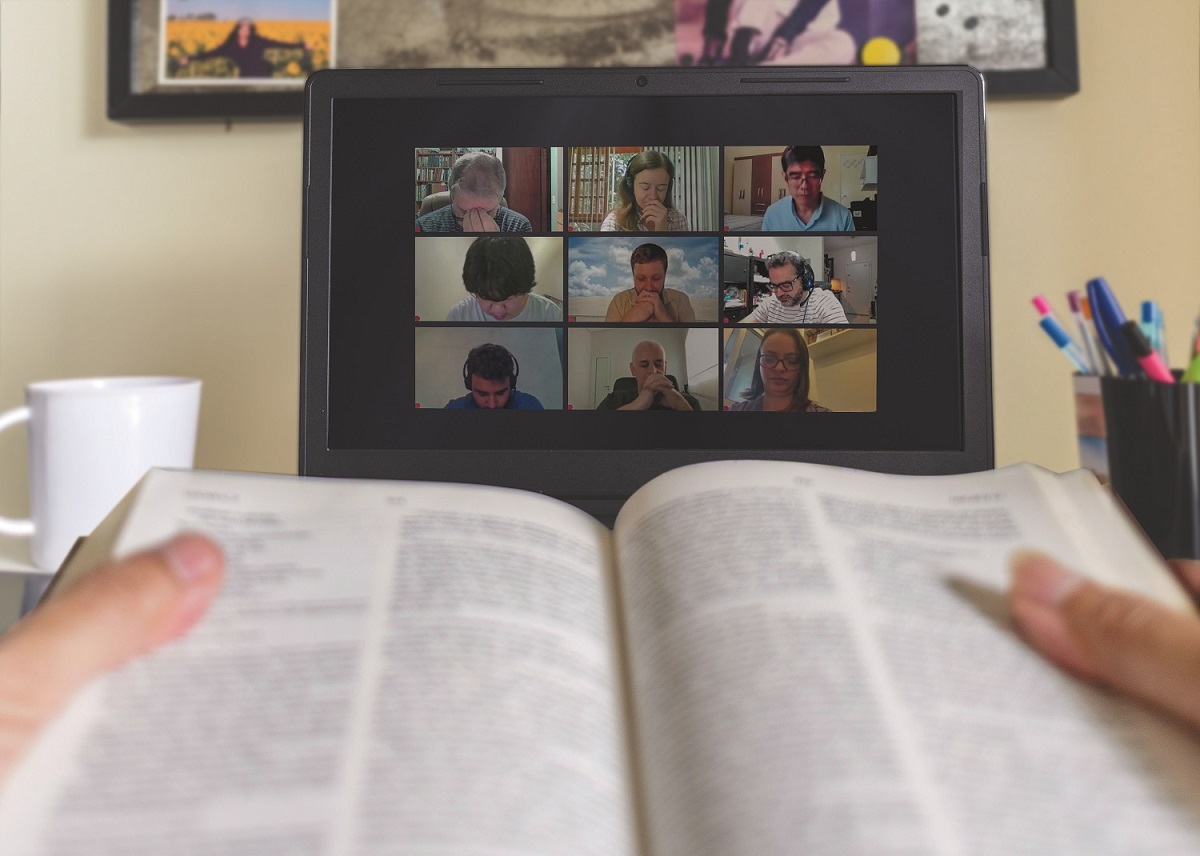
The global pandemic has made reaching out and connecting even more important in a ‘virtual’ world.
Women are equal
By Roslyn Richardson
My experience of the Uniting Church is of a faith community that recognises the genuine struggles of people wrestling with what it means to be a Christian in a broken world.
Both globally and in Australia we have been confronted by sickness, death and dislocation caused by the global pandemic. Happening alongside the health crisis, an ever-increasing climate crisis is delivering catastrophic bushfires, floods, drought, rising sea levels, heatwaves, bleached coral reefs and wild weather. In response, governments delay and debate taking action.
Despite the social progress in many parts of society, it is still a dangerous time for so many people on the losing side of history and the wrong side of power across the world: ethnic minorities, the dispossessed, refugees, victims of domestic violence, people living in poverty, and political prisoners. The shocking statistics reveal that each week in Australia a woman is murdered by her partner, as domestic and family violence remains a tragic and largely silent epidemic in the community. In 2017, the hashtag #MeToo went viral.
When the marriage equality debate raged in Australia, it felt like a very dangerous time with many people hurt on both sides. I was proud that my church shared my view on marriage equality, and equally with freedom of religious interpretation, in contrast to other religious communities who added mostly conservative voices to the painful debate.
Churches cannot sit quietly on the sidelines. Yet many do. I’ve been encouraged to see the strong position and action taken by the Uniting Church on issues like climate change and social change, even if more still urgently needs to be done.
One of the things I never truly appreciated about my experience of growing up in the Uniting Church was how women were encouraged to use their gifts of leadership and ministry, challenging centuries-old ideas that women are not capable of nor fit for leadership.
There’s no denying this position to ordain women and men equally into the Ministry of the Word is a departure from an almost universal practice of the church throughout history. Yet, the Uniting Church affirms that ordaining both women and men is simply consistent with God’s love in Christ, which does not discriminate on grounds of gender.
I love that I can share this experience with my two young boys, so they too can learn that God’s love does not discriminate, and no-one should be discouraged to use their gifts. Whatever life lessons they receive, they will know they are loved by God, and men and women are equal.
Empowering women as leaders, upholding marriage equality for homosexual couples, campaigning for climate action and in all the ways it fights for social justice, the Uniting Church took the road less travelled.
Yet, by departing from the conservative religious path, the church became more relevant and connected to the contemporary world.
Growing up alongside a strong church from childhood into adulthood and parenthood, learning what it means to be loved by God and turn his love into action, being encouraged to embrace vulnerability, and being part of a strong community has helped me make sense of the world and my place in it.
Roslyn Richardson is a freelance writer and editor.
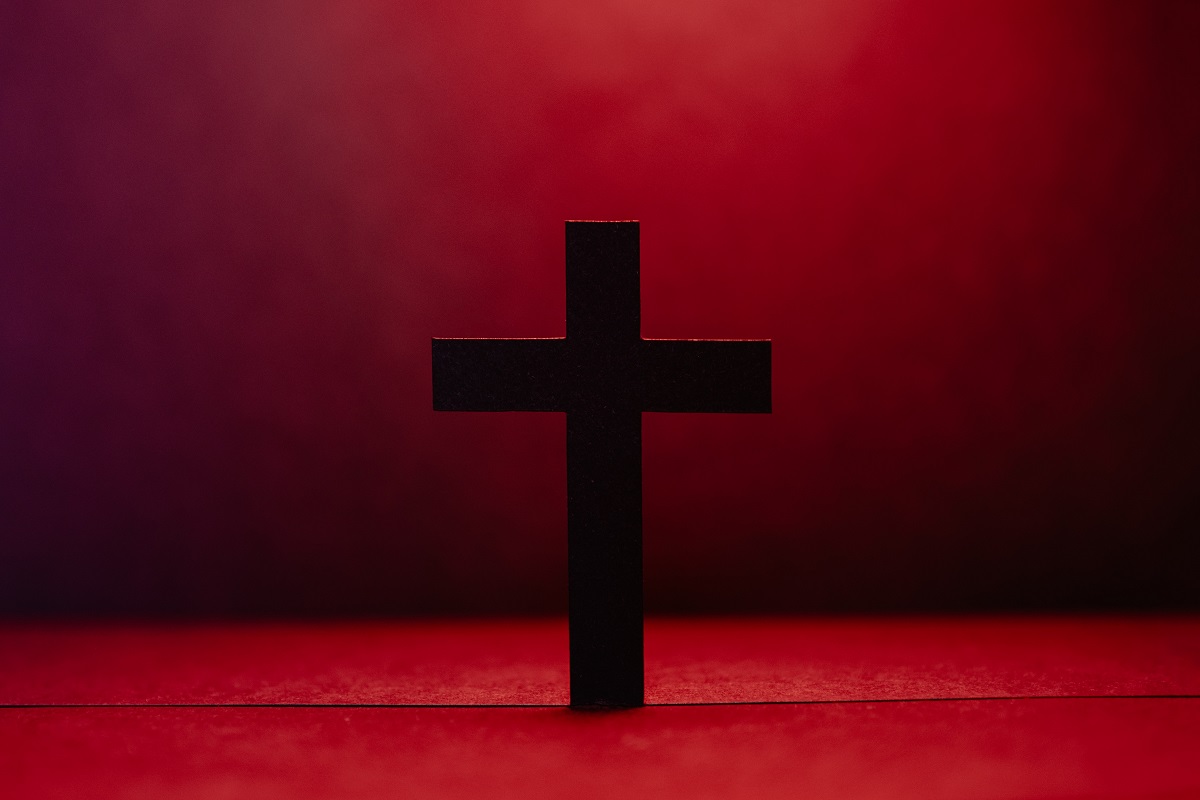
“Our name, the Uniting Church in Australia, is an honest and truthful proclamation to the wider world of the paradox of the Church—the manifestation of God’s perfect love in a community of imperfect saints and sinners.”
Christ before country
By Peter Son
Our church, as our official name describes, is uniquely Australian.
Names are an important part of representing our identity. The Bible is filled with transformative characters such as Abram, who later became Abraham, Sarai, who became Sarah, Saul, who became Paul, and my favourite Simon, who Jesus named Peter.
Our name is not a mere label, but an honest and truthful symbolic representation of our identity. Our name, the UCA, is the Uniting Church in Australia, not the Uniting Church of Australia.
Although I’m not a historian, nor a theologian, I believe that the preposition “in” was an intentional choice when we discerned our church’s name. The preposition “of” would have placed higher importance on our Australian identity, rather than our identity as Christians; it would have been synonymous with Australia’s Uniting Church.
Had our church’s name been the Uniting Church of Australia, I believe this would have incorrectly placed too much importance on nationalism in the representation of our Christian identity.
While I am a Christian, I’m also an extremely proud Australian. However, my identity as a Christian compels me to worship Christ, and not my cultural heritage, upbringing or preferences.
Thankfully, and rightfully, our name is the Uniting Church in Australia. I believe this two-letter word “in” is powerful, as is the syntax of “Church” ahead of “Australia”.
Our name acknowledges our geographic and cultural underpinnings, while prioritising our identity as followers of Christ. Further, the present continuous tense “Uniting” observes how we are in an ongoing life mission to seek unity with God, and each other, through Christ.
Our name is not just a label. Our name, the Uniting Church in Australia, is an honest and truthful proclamation to the wider world of the paradox of the Church—the manifestation of God’s perfect love in a community of imperfect saints and sinners.
Peter Son is a public policy officer in the NSW Government.
We need to listen always
By Liana Whitten
I would like to envision a future that continues to honour our diversity, that understands that church in Australia is now marginal and not mainstream, that endeavours to offer service in the community as an act of faith and not of bureaucracy, that views our leaders as fellow travellers on the road, regardless of whether they are lay or ordained.
We need to do a better job of looking after our leaders. We need to do a better job of breaking down traditional structures of worship to allow those who don’t understand our “churchy” language and style to be a part of what we do (and even to lead it).
We need to do a better job of making space for young people to take over and do it their own way, not just wait for young people to volunteer to do the jobs we think need to be done to keep things exactly as they have always been.

Young people offer a bright future for the Uniting Church, bringing fresh ideas and vitality.
Looking back on the common thread in every UCA congregation of which I have been a part, the foundation has always been relationships. If our future can look like that—a community that feels like family, where grace abounds and the world knows we are His disciples by our love (easier said than done)—then I think this looks like a church that the world actually needs.
If we can be more concerned about spreading God’s love than filling our buildings, if we can be more interested in the restoration and reconciliation of us to one another and the creation to God then we will be a people who add value to our communities, our country and the creation as a whole.
If we are only interested in our own relevance or if we fail to see that our own structures are the first place that we need to exhibit love, grace, forgiveness and service, then we will fail to be God’s people and perhaps that means Australia (and the world) and God don’t need us to have a future.
I consider myself a child of the Uniting Church and, much of the time, I am a proud child. I fundamentally believe that there is no other church or faith community offering what we have the capacity to offer.
For us to have future that is vital and lifegiving, we need to embrace our identity as a place of welcome and relationship. We need to continually seek forgiveness, reconciliation and redemption where we have stepped awry. We need to always seek to listen, learn, love, laugh and leap in faith— probably in that order. This is the kind of UCA I believed I grew up in and it is the kind of UCA I want my children to embrace. It is the kind of UCA that the world actually needs.
Liana Whitten is a lawyer who believes her work is also part of her ministry.
We try new ways of worship
By Michelle Harris
The Uniting Church was a risk. What a leap of faith, bringing three denominations together. I’m sure there would have been doubters, and there were definitely dissenters. But it has worked. It’s not perfect and it might not last forever. But it has shown me sometimes you just have to take that leap.
Being part of the Uniting Church means being part of community. And being part of a community, amongst other things, means serving others.
It’s not always easy, but I think it’s so important. It’s basic to our faith and humanity and contributes to our sense of belonging.
The Uniting Church, of course, has its struggles. Some of these are unique; some of them I feel are societal. It seems to be a societal problem that people are joining and volunteering less and less in community organisations.
The commitment to live and learn and grow, the continued effort and struggle to be a relevant church in the 21st century is what makes me stick with the Uniting Church.
There are several other reasons as well. Our Church’s work and relationship with our Aboriginal and Islander brothers and sisters through UAICC (Uniting Aboriginal and Islander Christian Congress) is another.
Our continuing relationships with, and support for, overseas partner churches is another. Also, our Church’s willingness to try new ways of worship, to value both traditional and modern, old and new, is encouraging.
Michelle Harris has completed tertiary studies in education and theology.




